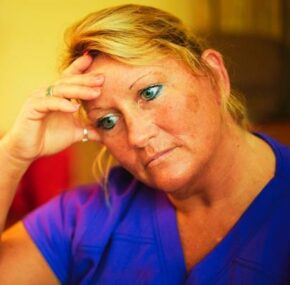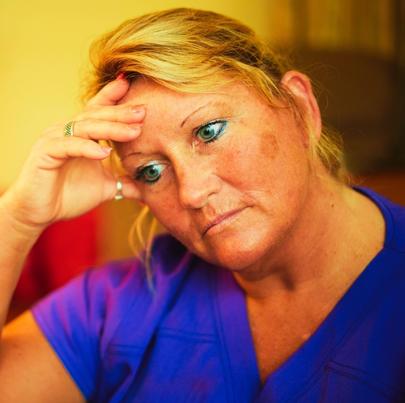The COVID-19 pandemic has created a crisis in Illinois nursing homes caused by insufficient staffing, poor retention of qualified nurses, a lack of proper job training, and low wages.

Nursing Home Residents Face Injury Risks
As the coronavirus pandemic lingers on, nursing homes across the country are having difficulty recruiting and retaining qualified nurses. As a result, many nursing homes and long-term care facilities are facing staffing shortages and problems providing quality care for residents. With staffing levels at an all-time low, nursing home residents are facing increased risks for a variety of health issues caused by lack of proper care, as well as physical and emotional neglect and abuse.
Illinois nursing homes have one of the highest rates for resident safety violations in the country. In 2019, the Illinois Department of Public Health (IDPH) reported more than 110 safety violations for substandard care of residents, including actions of neglect and abuse. IDPH is responsible for regulating and monitoring resident care in about 1,500 Illinois nursing homes across the state. Each year, they conduct on-site inspections to investigate facility policies and procedures; facility finances; the quality of care for residents; individual care plans for residents; and facility staffing.
Since the peak of the COVID-19 pandemic, nursing home abuse lawyers have witnessed a spike in nursing home injury claims related to the following health conditions, often caused by lack of proper care and attention:
- Cuts, bruises, and broken bones
- Skin infections
- Bedsores
- Edema in lower limbs
- Malnutrition
- Dehydration
The Impact of the COVID-19 Pandemic
According to both federal and state regulations, nursing homes and long-term care facilities are required to uphold the highest standard of care for all residents. This includes each resident’s physical and mental health, medical treatments, medications, nutrition, and personal care needs.
An adequate staff of qualified nurses and caregivers is essential to quality care for nursing home residents. An insufficient nursing home staff or a staff of unqualified nurses and caregivers can lead to safety violations and citations under the Illinois Nursing Home Care Act, established in 1979. During the pandemic, Chicago nursing home abuse lawyers have seen a rise in violations that violate this act.
In a 2021 survey of 616 nursing homes by the American Health Care Association (AHCA) and the National Center for Assisted Living (NCAL), 94% report staffing shortages for qualified nurses. At least 75% of nursing homes surveyed indicate that the hiring and retention of qualified nurses has gotten much worse since 2020 due to a higher turnover rate.
Currently, many nursing homes and long-term care facilities are actively attempting to hire registered nurses (RNs), licensed practical nurses (LPNs), and certified nursing assistants (CNAs), as well as more dietary and housekeeping staff. However, COVID-related deaths, long hours, and low wages are keeping many nursing professionals out of the workforce.
The recent survey points out serious challenges for long-term care facilities that are federally funded by Medicare and Medicaid. The U.S. Department of Health and Human Services’ Centers for Medicare and Medicaid Services (CMS) oversees federally-funded Illinois nursing homes and long-term care facilities that receive Medicare and/or Medicaid funding. Lawmakers across the country state that the chronic under-funding of Medicaid, a primary resource for long-term care residents, is partly to blame for nursing staffing shortages because it only covers 70% to 80% of the cost of care.
According to the AHCA and the NCAL, 78% of nursing homes and 71% of long-term care facilities are afraid they may be forced to close if the staffing emergency continues. At least 59% of nursing homes and 30% of long-term care facilities characterized their staffing situations as “severe.” Most facilities say the problem has worsened within the last three months.
To keep up with resident care needs, almost all facilities are asking their staff members to work overtime and extra shifts, which may lead to greater staff burnout and a higher rate of resident injury claims seen by nursing home abuse lawyers.
Resolving the Nursing Home Crisis
The American Health Care Association and the National Center for Assisted Living recently polled 1,183 nursing homes and long-term care facilities. Over 96% of these facilities reported some degree of staffing shortages, and over 50% characterized their staffing situations as severe since the onset of the COVID-19 pandemic. Facilities report they are struggling to hire and retain staff that’s essential for vulnerable residents.
According to industry surveys, severe staffing shortages for nurses and caregivers have forced most facilities to reduce new admissions and rely on overtime shifts and costly agency recruits to maintain normal operations. National groups are asking the Department of Health and Human Services to declare a national nurse staffing crisis. They claim that a shortage of interested and qualified candidates and a lack of competitive wages during the pandemic has caused many skilled nurses and caregivers to change their career paths.







